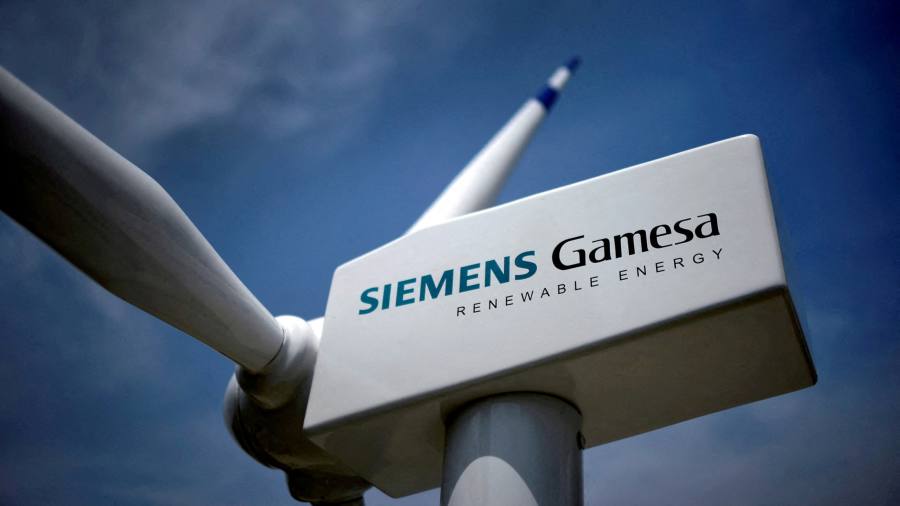Receive free Wind power updates
We’ll send you a myFT Daily Digest email rounding up the latest Wind power news every morning.
Even by the wind industry’s turbulent standards, Siemens Energy’s warning is a stonker. Its troubled turbine-making unit Gamesa has been hit by quality issues, lower margins and slower growth. The market has wiped more than 30 per cent, or about €6bn, off the German group’s market value.
A technical review at Gamesa revealed faulty components in 15 to 30 per cent of its turbine models. Replacing components before they pack up could cost €1bn-plus. On top of this, Gamesa may be blown off course by cost inflation and a slower than expected pick-up of production capacity.
Financially, this will hit Siemens Energy hard. It has withdrawn profit guidance for 2023, which was for it to barely break even before special items. It also raises the question of how long it might take to turn Gamesa around. The wind-turbine unit accounts for about a third of Siemens Energy’s €32bn of 2023 revenues, according to Berenberg, and was expected to turn profitable in 2024.
With this warning coming seemingly out of nowhere, investor confidence in the group’s forecasting abilities will also have been blown out of the water.
This may explain the share price reaction, which has wiped off about half of the €12bn at which Siemens valued Gamesa when it bought out minorities earlier this year. Put another way, the group, on €15 a share, approaches the sum-of-the-parts value excluding Gamesa of about €11 per share, according to Nick Green at Bernstein.
Siemens Energy’s warning highlights the headwinds facing the wind industry as a whole. Stretched supply chains imply a higher likelihood of quality issues. Competitive pricing means manufacturers are poorly compensated for the risk of things going wrong. And service contracts on order books — which throw off cash when times are good — can be an obligatory deadweight in stormy seas. While wind energy is a growth business, companies in the space are struggling to pick up speed.
Read the full article here




